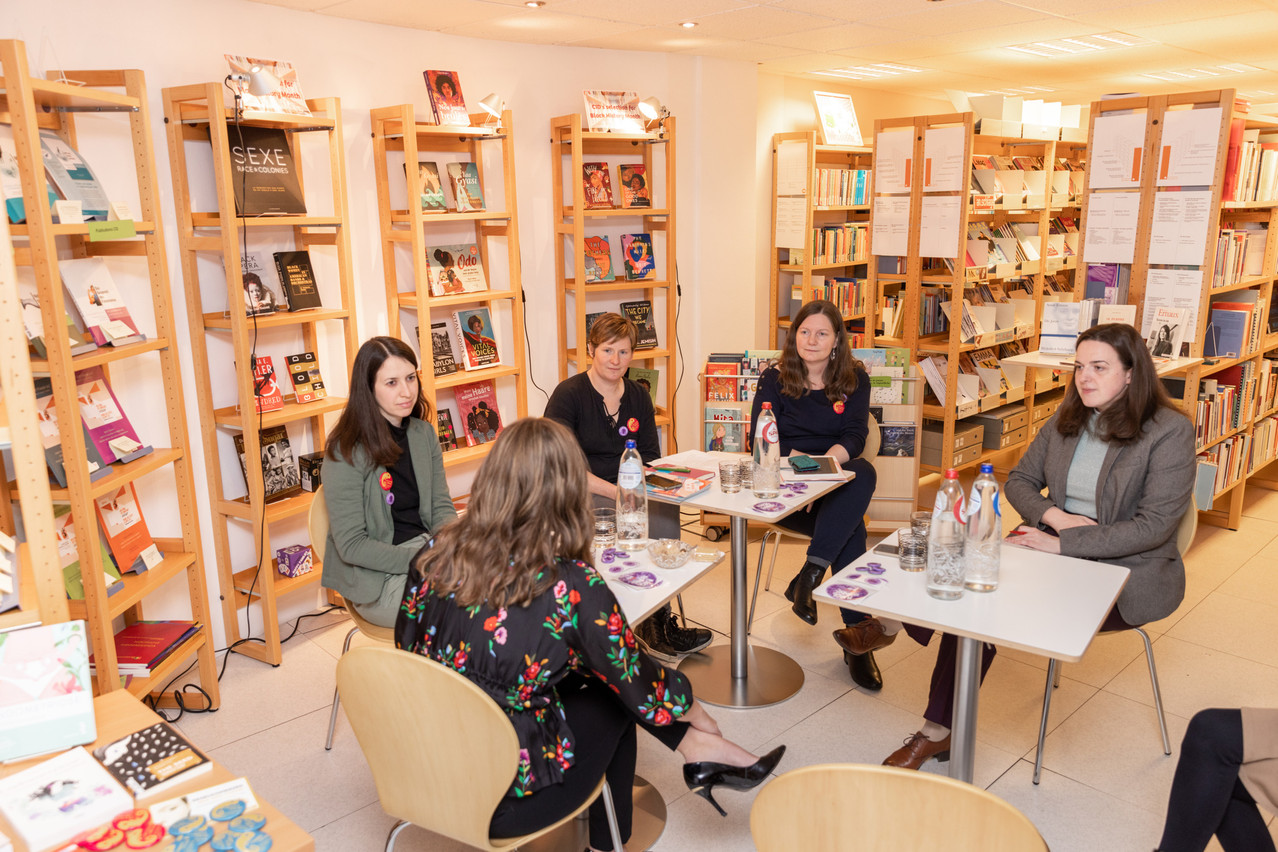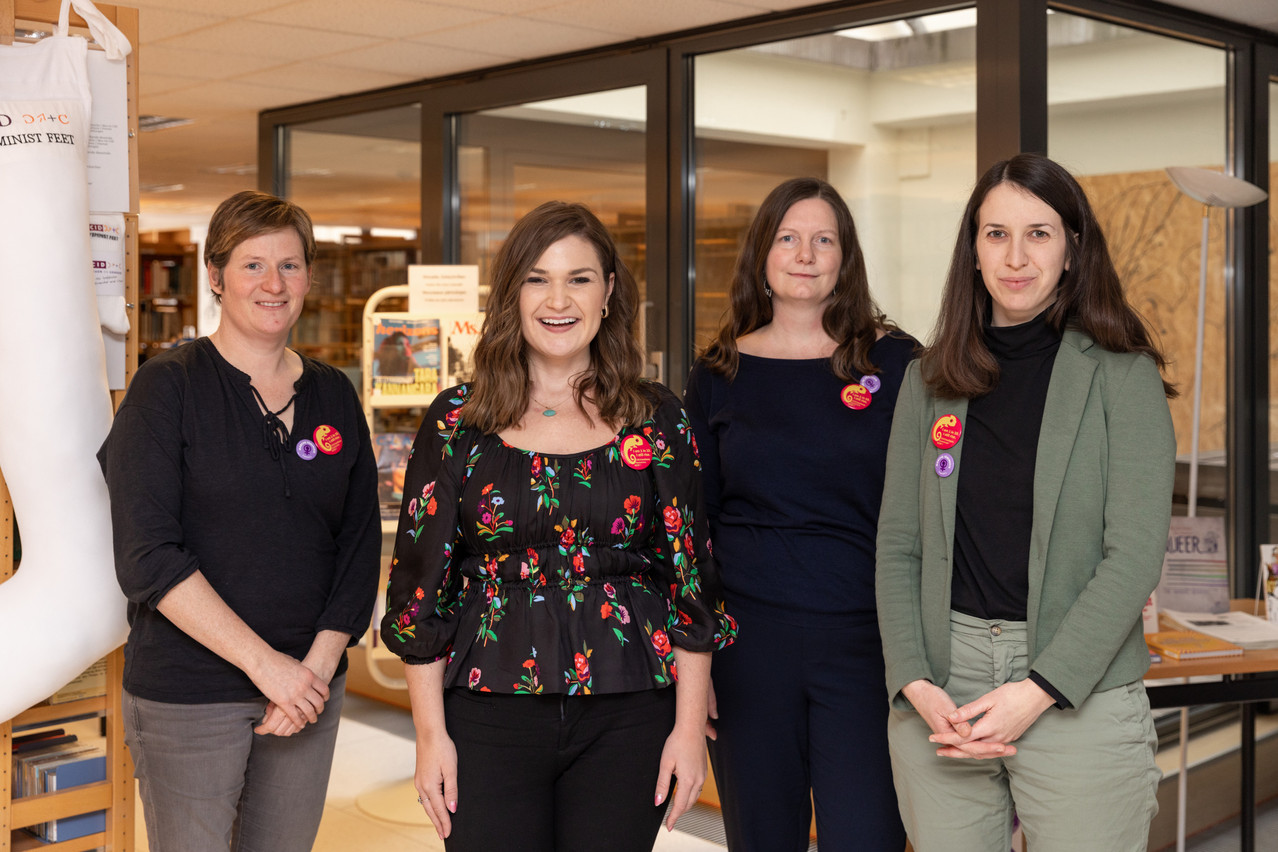“When I decided to share my story, it was truly the first time I finally felt seen and not alone. It’s a very isolating condition. And the pain is very real.” US special envoy for global youth Abby Finkenauer this past week joined a roundtable discussion with women in Luxembourg to discuss endometriosis, a condition that remains largely unknown.
Women suffering from the disease develop tissue resembling the lining of the uterus outside of this organ. This leads to a chronic inflammatory reaction that can result in the formation of scar tissue in the body but can also cause debilitating cramps and fertility issues.
“We call it the chameleon of gynaecology,” said Anabelle Saffran, gender equality commissioner at the City of Dudelange, who also suffers from the condition. “It’s different in every person.”
The diverse range of symptoms is part of what makes endometriosis so difficult to diagnose. Women on average see eight doctors and it can take between six to ten years to receive a diagnosis. But there is also simply a lack of knowledge and awareness, also within the medical community. “We have to study medicine to understand ourselves,” said Saffran.
In Annemie Maquil’s case, for example, endometriosis affects her femoral nerve. The City of Luxembourg’s gender equality commissioner was diagnosed as an adult after suffering in silence throughout her teenage years. “A lot of people told me that I never complained. The thing is, I did complain and then I noticed that nobody reacts. And then you just stop complaining and try to live with it.”
Lack of funding
Endometriosis “has one of the least amounts of funding by the National Institutes of Health in the United States,” said Finkenauer. After she was elected to Congress, she decided to found an endometriosis caucus. “I told my story on the floor of the US House, talked about hysterectomies and ovaries… and we were able to double the funding.”
One in ten women are estimated to suffer from endometriosis and opening up about her own story, Finkenauer discovered many more women who had the disease. Chances are that you know someone who has endometriosis, she said during the roundtable. “As we find out more and awareness increases, you’re going to find more people that are connected with it in some way.”
As we find out more and awareness increases, you’re going to find more people that are connected with it in some way.
Appointed special envoy for global youth by US president Joe Biden in December last year, Finkenauer hopes to use her new position to integrate her endometriosis advocacy into her current role. “It had everything to do with global youth,” she said. They should “know they’re not alone, that there’s a name for it.”
There is no data on how many women in Luxembourg live with endometriosis. The disease is not codified within the national health fund’s catalogue of illnesses, said Isabelle Schmoetten of the non-governmental organisation CID Fraen an Gender. “We know how many operations there are,” she said, but this doesn’t give any insight into whether the same person was operated on several times, for example.
Need for an endometriosis centre
One of the ways to treat endometriosis is so-called excision where endometriotic tissue is cut out. This is the standard of care in Luxembourg, unlike the US where ablation is still commonly used, a treatment that destroys the lining of the uterus using extreme cold, heated fluids, microwave energy or high-energy radiofrequencies.
“We don’t have an endometriosis centre in Luxembourg. There’s no place where this specialised knowledge comes together,” Schmoetten said. A centre has been slated by policymakers for several years but has yet to come into being.

Delano journalist Cordula Schnuer (r.) facilitated the discussion between Abby Finkenauer, Isabelle Schmoetten, Annemie Maquil and Annabelle Saffran at the CID Fraen an Gender library on 6 March Photo: Romain Gamba
This year’s elections could be an opportunity to increase pressure, said Schmoetten, who also suffers from endometriosis. In a catalogue of questions sent to political parties, all of them agreed that endometriosis should be considered a clinical disease. Until recently, women taking the birth control pill--a common form of treatment--had to pay out of pocket as the pill is not officially recognised as a remedy.
The government earlier this year decided to make the pill and other types of contraception free of charge.
A petition to parliament last year demanding that endometriosis be classified as a chronic condition, however, failed to reach the 4,500 signatures required to be debated with policymakers.
Economic impact
“Some women just drop out of the workforce completely, because it is so debilitating,” said Finkenauer. “It’s an economic issue. Our economy is losing out the longer we don’t have treatment, the longer we don’t have more research, the longer awareness is low.”
More flexible work from home policies could help, the women agreed, although this will only benefit women working in professions where this is possible.
Medical care must also improve. Not only is it a long path to diagnosis, but women in Luxembourg receive no post-surgery rehabilitation. Germany, for example, offers physiotherapy, yoga or acupuncture, Schmoetten said.
Some women just drop out of the workforce completely, because it is so debilitating.
And with a lack of expertise in some areas, many women in Luxembourg have to seek care outside of the country. “Luxembourg is so small that for many things where there aren’t so many cases, we don’t get a critical mass,” said Saffran. “But people in Luxembourg have health issues, too.”
The mental health side effects are also often overlooked, said Saffran. The CID Fraen an Gender last year organised a workshop on endometriosis and many women who showed up were clearly traumatised, said Saffran. Not only have their had to fight for diagnosis and deal with unresponsive medical staff, but they also suffer through pain, surgeries and isolation.
One of the steps in the fight against endometriosis is to speak more openly about periods to begin with. “I would really like menstruation to be considered as something normal,” said Maquil. “Because then we can get to an understanding of what is not normal and talk about it.”
The CID Fraen an Gender has compiled an of titles available at its library in 12 Rue Beck in Luxembourg City. The organisation is also hosting an event for women with endometriosis on .


